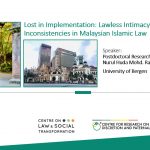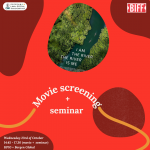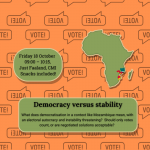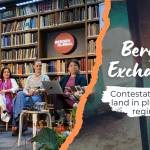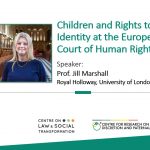📢 Join us for a crucial discussion on transnational anti-gender movements and their impact on human rights and democracy! Across the globe, organized anti-gender movements are challenging gender equality, LGBTQ+ rights, and democracy itself. What are their strategies, and how can we resist this backlash? 🔹 Speakers: ✨ Neil Datta – Founder & Executive Director […]
Welcome to this RDV-seminar with Munzoul Assal on External mediation dilemmas in Sudan conflict: Jeddah and IGAD mediation initiatives. Sudan’s war will soon complete its second year without foreseeable possibility for ending it in the near future. The war has inflicted egregious suffering and resulted in one of the most serious humanitarian disasters in the world. […]
We welcome you to the RDV panel with Dr. Ayo Sogunro (author, essayist and human rights lawyer), Dr. Matthew Gichohi (Post Doctoral Researcher, CMI), and Erwin Navarro (Skeiv verden vest) moderated by Dr. Liv Tennessen (Co-director, LawTransform, Senior researcher, CMI). Queerphobia has become an issue of political contestation across the world. Transnational groups and governments, […]
We invite you to our breakfast seminar with Jakub Konečný, the Chech Republic Public Defender of Rights The lecture will be focused on the desegregation of education in the Czech Republic, particularly with regard to how the Office of the Ombudsman has been involved in addressing this human rights issue.
Research on trust is highly interdisciplinary and has produced an impressive body of knowledge about its forms, causes and consequences. However, existing research agendas have notable biases, two of which are the focus of this presentation: first, research privileges trust while marginalising distrust, resulting in an incomplete and flawed understanding; second, it engages in sweeping generalisations, overlooking distinctions
Nurul Huda Mohd. Razif is a social anthropologist and Marie Curie Postdoctoral Fellow at the University of Bergen. She studied Anthropology and French at the University of Western Australia and Sciences Po Paris, before receiving her PhD in Social Anthropology from the University of Cambridge in 2018. She has held research fellowships at Harvard Law School and centers for Southeast Asian Studies in Leiden, Paris, and Kyoto. She works primarily on the intersection of Islam, intimacy, and the state in the Malay world and Muslim Southeast Asia.
Join us for a free movie screening and a seminar of “I am the river, the river is me”. The movie tells the story of the Whanganui River in New Zealand. Besides holding a key role in the history and mythology of the indigenous Māori people, the river holds a unique role in the world […]
General elections in Mozambique On 9 October, Mozambique held regular presidential and legislative elections, the 7th in a row since the end of internal war and the introduction of multiparty democracy. As in previous elections, there is evidence of massive fraud and manipulation in favour of Frelimo, the ruling party, which has won all elections, […]
As a part of the 2024 Bergen Exchanges, we got an update on the preliminary findings within the PluriLand project.
In her presentation, Jill Marshall examines how human rights law, particularly the European Court of Human Rights, has developed the right to personal identity under Article 8 of the European Convention on Human Rights. Building on previous work, she focuses on the Court’s case law relating to children, analyzing how personal identity is protected and interpreted. Marshall critiques the role of human rights law in shaping personal identities from birth and explores what the Court has achieved and could achieve in this area.
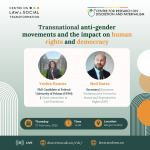 Transnational anti-gender movements and the impact on human rights and democracy
Transnational anti-gender movements and the impact on human rights and democracy





